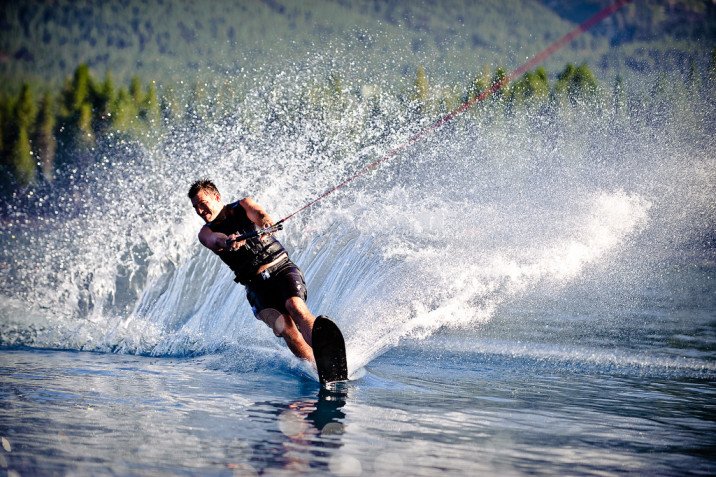Enjoying water skiing on Florida’s pristine lakes and coastal waters epitomizes the Sunshine State lifestyle. But whether you’re a casual enthusiast or a seasoned pro, it’s crucial to be aware of the legal requirements that govern this thrilling sport. Florida’s regulations balance enjoyment with safety, and failure to observe them can lead to penalties—or worse.
This comprehensive guide covers when you can legally ski, what safety equipment is required, boating obligations, and practical advice. Whether you’re planning a family outing or organizing a competitive event, understanding these rules ensures both legality and safety on the water.
Legal Window for Water Skiing
Florida statutes clearly define the timeframe within which water skiing and other towed sports are permitted:
-
Allowed Timeframe: From 30 minutes before sunrise until 30 minutes after sunset.
-
Prohibited: No water skiing during the night, even if your boat is equipped with lights.
This restriction avoids poor visibility conditions after dark, reducing the risk of collisions or drowning. It also aligns with wider boating laws that prohibit the operation of personal watercraft between these hours .
Mandatory Safety and Equipment Requirements
Florida law mandates specific safety gear and onboard procedures for vessels towing skiers:
1. Personal Flotation Device (PFD)
Every skier must wear a USCG-approved, non-inflatable wearable PFD (Type I, II, III, or V). Inflatable PFDs are not permitted while skiing.
2. Observer or Rearview Mirror
The towing vessel must have either:
-
A dedicated observer (minimum age 10–12 based on statute interpretation), or
-
A wide-angle rear-view mirror meeting legal specifications.
The observer’s task is to continuously monitor the skier and signal the operator as needed.
3. Sobriety Requirement
Water skiing under the influence of alcohol or drugs is strictly prohibited operators must maintain a legal blood alcohol content, and anyone impaired cannot ski.
4. Safe Operation Distance
The boat must not tow a skier so close to fixed objects or other vessels that it poses a collision risk.
5. Visibility & Conditions
Skier visibility and boating conditions must be safe. Though Florida doesn’t mandate a minimum distance from docks statewide, safe speed and distance are implied.
6. Additional Safety Gear
While not always tied to skiing, boats must carry required safety equipment based on size and usage, such as:
-
USCG-approved throwable devices (Type IV),
-
Fire extinguishers,
-
Visual distress signals,
-
Sound signaling devices,
-
Navigation lights during restricted hours.
Operating Boats and Personal Watercraft (PWC)
Boating rules in Florida particularly address personal watercraft when towing:
-
PFDs: Required for all onboard, must be non-inflatable.
-
Kill Switch: Must be attached to the operator if the boat has a cutoff switch.
-
Nighttime Operation: PWC (and boats towing skiers) are prohibited 30 minutes after sunset to 30 minutes before sunrise—lights do not override this ban.
-
Age Restrictions: Operators must be at least 14; renting PWCs requires operators to be 18.

Ensuring Safe and Legal Practices
Beyond the bare minimum, responsible boating makes water skiing safer and more fun:
A. Competent Observer & Communication
-
Observer should be at least 10–12 years old.
-
Must visually monitor the skier and communicate (usually via hand signals or voice) to the operator.
B. Use of Signal Flags
Florida law often requires using a “skier down” flag whenever a skier is in the water, to alert other vessels.
C. Safe Speed and Navigation
Avoid congested areas, maintain sensible speed, and stay clear of restricted zones like swimming areas or shorelines.
D. Emergency Preparedness
Have a marine radio, cellphone, first aid kit, fire extinguisher, and throwable flotation device ready.
Legal and Financial Consequences
Violating Florida boating and skiing laws can result in serious repercussions:
-
Fines and Penalties: Non-compliance can lead to fines and citations.
-
Misdemeanors: Reckless operation, operating under influence, or renting non-compliant PWCs can result in misdemeanors and possible jail time.
-
Insurance Claims: Unlawful operation may void insurance and lead to liability for damages or injuries.
Frequently Asked Questions (FAQs)
Q1: Can I ski after sunset with navigation lights?
A1: No; skiing is prohibited 30 minutes after sunset and 30 minutes before sunrise, even with boat lights .
Q2: Are inflatable life vests allowed?
A2: No; all skiers must wear non-inflatable PFDs approved by the USCG .
Q3: Can I use a mirror instead of an observer?
A3: Yes, but it must be a wide-angle ski mirror that allows continuous observation .
Q4: What if I don’t have safety gear onboard?
A4: That’s illegal and could result in citations, fines, or legal liability, especially if an accident occurs.
Q5: Is skiing allowed in all Florida waters?
A5: Skiing is permitted in daylight hours and in areas not restricted by no-wake zones, swim areas, or conservation zones. Operators must always maintain safe speed and clearances .
Conclusion
To legally and safely water-ski in Florida:
-
Ski only between daylight hours (½ hour before sunrise to ½ hour after sunset).
-
Ensure USCG-approved non-inflatable PFDs for all skiers.
-
Provide a qualified observer or wide-angle mirror.
-
Avoid skiing under the influence and maintain safe distances.
-
Equip the boat with required safety and emergency gear.
Adhering to these guidelines not only ensures compliance with Florida law but also significantly reduces the risk of accidents and liabilities. With safety as your priority, you can confidently enjoy the thrill of water skiing on Florida’s beautiful waterways.

